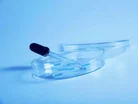NICE backs Europe's first stem cell therapy for NHS use

Chiesi’s Holocar, the first stem-cell therapy to be approved by European regulators, has been given the go-ahead for use in the NHS in England and Wales.
The National Health Institute for Health and Care Excellence (NICE) has published guidelines which support Holocar as a form of treatment for adults with moderate to severe limbal stem cell deficiency (LSCD) after eye burns.
However, the guidelines detail that the therapy may only be used to treat one eye affected by the rare sight condition and in those who have a conjunctival limbal autograft.
RELATED STORES:
- The rise of medical tourism is impacting stem cell treatments
- ReWalk Robotics signs new agreement with Harmonie Médical Service
- Three ways that tech is transforming the life sciences and healthcare supply chain
Holocar has also be given the green light for use if there isn’t enough tissue for conjunctival limbal autograft or it is contraindicated.
A seriously debilitating condition, LSCD may affect one or both eyes, and is most commonly stemmed from chemical or physical ocular burns.
Left untreated, it can cause chronic pain, burning, photophobia, corneal neovascularization, inflammation, stromal scarring and the reduction or complete loss of vision.
The treatment uses the patient’s own stem cells to regenerate and repair damaged tissue in the eye and is the first therapy to use stem cells as an active substance to win regulatory approval in Europe, back in 2015.
In a statement, Chiesi's UK managing director Tom Delahoyde said: “We are delighted that NICE has recommended that eligible patients have access to this personalised and regenerative medicine for a rare and seriously debilitating orphan condition.”
It is estimated that around 100 patients are eligible to be treated with Holocar in the UK.
